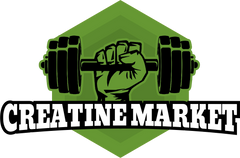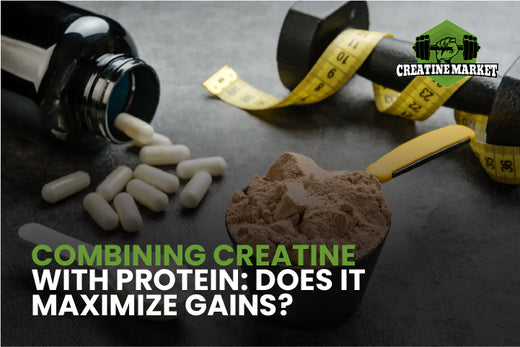Following a plant-based diet while maintaining optimal creatine levels presents unique challenges, as most natural creatine sources come from animal products. This comprehensive guide explores how vegans and vegetarians can effectively maintain their creatine levels through both natural sources and supplementation.
Understanding Creatine Needs on a Plant-Based Diet
Plant-based eaters face distinct considerations regarding creatine intake, as their bodies rely primarily on self-produced creatine. The human body naturally synthesizes about 1-2 grams of creatine daily from amino acids, but research suggests this might not be optimal for athletic performance or cognitive function.
Natural Synthesis in the Body
Your liver and kidneys produce creatine using three amino acids: glycine, arginine, and methionine. While vegans and vegetarians can obtain these amino acids from plant sources, the total creatine production might be lower than omnivores who also get creatine directly from animal products.
Plant-Based Sources of Creatine Precursors
Understanding which plant foods provide the building blocks for creatine helps optimize natural production within the body.
Amino Acid Rich Foods
Several plant foods contain high levels of the amino acids necessary for creatine synthesis. Seaweed, spirulina, and nutritional yeast provide significant amounts of all three crucial amino acids. Legumes, particularly soybeans and lentils, offer substantial amounts of arginine and glycine.
Vegan Creatine Supplements
Supplementation often becomes necessary for plant-based athletes and active individuals seeking to maintain optimal creatine levels.
Synthetic Creatine Options
Most commercial creatine supplements are vegan-friendly, as they're synthesized in laboratories rather than extracted from animal sources. Creatine monohydrate, the most researched form, is typically produced through synthetic processes and is suitable for vegans and vegetarians.
Optimizing Creatine Intake on a Plant-Based Diet
Creating an effective strategy for maintaining adequate creatine levels requires attention to both dietary choices and supplementation approaches.
Supplementation Strategies
Plant-based athletes might benefit from slightly higher supplementation doses compared to omnivores, particularly during the initial loading phase. A typical protocol might involve 5 grams daily, with some choosing to implement a loading phase of 20 grams daily for 5-7 days.
Combining Supplements with Natural Sources
Maximizing creatine levels involves utilizing both supplementation and natural precursors effectively.
Timing Considerations
Strategic timing of amino acid-rich meals and supplements can support optimal creatine synthesis. Consider consuming creatine precursor-rich foods throughout the day while timing supplement intake around workouts.
Performance Benefits for Plant-Based Athletes
Understanding the specific benefits of maintaining adequate creatine levels helps motivate consistent supplementation.
Plant-based athletes often notice significant improvements in strength, power, and high-intensity exercise capacity when optimizing their creatine levels through supplementation and dietary strategies.
Creatine's Role in Athletic Nutrition
Athletes require specific nutritional considerations when supplementing with creatine. Protein intake should be maintained at optimal levels while using creatine to support muscle protein synthesis. Hydration needs increase slightly, requiring additional fluid intake to support cellular size and volume. Studies show athletes may need up to 500ml additional water daily to maximize creatine's benefits and maintain proper hydration levels.
Cognitive Benefits of Creatine
Beyond athletic performance, creatine plays a crucial role in brain function and cognitive performance.
Mental Performance
Research suggests that vegetarians and vegans might experience more pronounced cognitive benefits from creatine supplementation, as their baseline levels tend to be lower than omnivores.
Special Considerations for Plant-Based Eaters
Different individuals may need to adjust their approach based on specific factors and goals.
Individual Needs
Factors like activity level, age, and specific dietary restrictions within plant-based eating patterns can influence optimal creatine strategies.
Quality and Sourcing
Understanding how to select high-quality creatine supplements ensures both effectiveness and ethical consistency.
Supplement Selection
Look for products certified as vegan and manufactured by reputable companies. Consider factors like purity testing and third-party verification when selecting supplements.
Common Concerns and Questions
Addressing frequent questions about vegan creatine supplementation helps ensure safe and effective usage.
Safety and Efficacy
Research consistently shows that synthetic creatine supplements are both safe and effective for plant-based individuals, with no significant differences in absorption or benefits compared to omnivorous populations.
Practical Implementation
Creating a sustainable approach to creatine maintenance involves developing consistent habits and routines.
Daily Integration
Incorporate creatine-rich meals and supplements into your existing routine in a way that feels sustainable and aligned with your lifestyle.
Monitoring and Adjusting
Regular assessment of your creatine strategy helps optimize results and ensure effectiveness.
Progress Tracking
Monitor relevant markers like strength gains, cognitive performance, and overall energy levels to assess the effectiveness of your creatine approach.
Conclusion
Maintaining optimal creatine levels on a plant-based diet is entirely achievable through a combination of thoughtful dietary choices and appropriate supplementation.
Focus on consuming adequate amino acid precursors through plant foods while supplementing with synthetic creatine as needed. Remember that individual needs may vary, and the best approach is one that you can maintain consistently over time.



